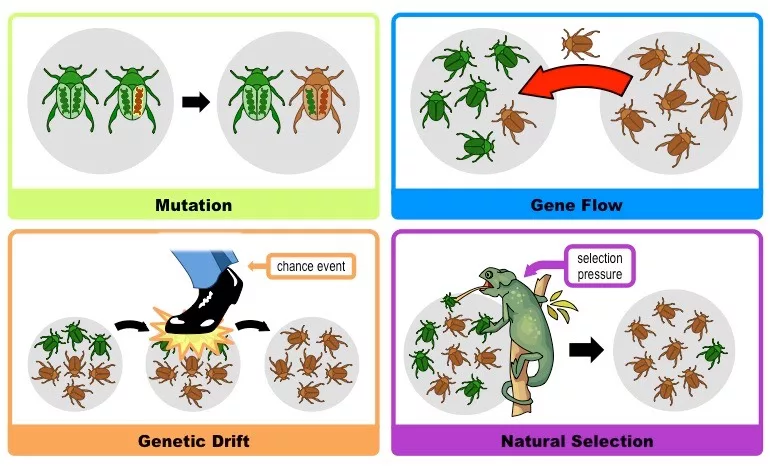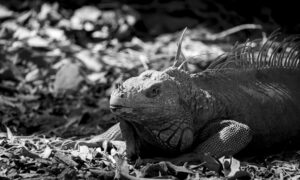Evolution is the process of changing and diversifying living organisms over time. This process takes place through a combination of changes in genetic material and environmental influences. Evolutionary mechanisms explain how these changes occur and how living organisms evolve.

Natural selection
Natural selection is a selection process that arises from competition in the struggle of species to survive and reproduce. Natural selection occurs when individuals with genetic differences have different rates of survival and reproductive success. Individuals better adapted for survival and reproduction pass on their genes more to subsequent generations, while those who are incompatible pass on less or not. This process can lead to changes in genes and adaptations in populations and, consequently, to the emergence of new species.
Mutation
Mutation is changes in genetic material and is the primary source of natural selection. Mutations can be created by errors in the DNA strand or by external factors. These errors or changes play an important role in the evolution process by increasing the genetic diversity of living organisms. Mutations can also cause new traits to emerge as a result of changes in genetic material.
Migration
Migration is the movement of a species between different places and exchange of genes between populations. Migration creates genetic diversity among different populations, and this diversity, combined with natural selection and mutations, can lead to the emergence of new species.
Genetic Drift
Genetic drift is a random process that causes a small subset of the population to form and genetic variations to be lost. In these small populations, a particular gene or trait may become more common or disappear altogether. Genetic drift can contribute to differences between species.
Gender Selection
Sex selection is the process by which male or female individuals of a species choose and decide on mating partners. This process leads to increased reproductive success of individuals with certain characteristics and qualities. Sex selection can contribute to the speciation process by causing certain changes in a species’ traits.
Living organisms evolve primarily through these evolutionary mechanisms. Living organisms diversify from one another due to these factors, resulting in the emergence of new species. Combining these mechanisms, however, is necessary to fully explain how evolution occurred and how species evolved. For this reason, evolutionary mechanisms are fundamental to understanding how living organisms evolve.
Living organisms undergo a process of diversification and change that is influenced by evolutionary mechanisms. By understanding these mechanisms, we can understand how living organisms evolve and how different species emerge. Thus, understanding the mechanisms of evolution is one of the fundamental topics of biology.







